Towards a sustainable eco-tourism policy for the department of Norte de Santander, Colombia
Hacia una política de turismo sostenible para el departamento de Norte de Santander, Colombia
Main Article Content
Abstract
The forces of the Norte de Santander department represented by communities, social organizations, associations representing people who the region hurts and some one or another political sector have always been concerned to develop sustainable ecotourism, conserving and enriching natural resources department, full watershed aplenty in the municipalities of Herrán, Pamplonita Cácota, Silos, Mutiscua, Cáchira, Villacaro, Lourdes, Abrego, El Tarra, Ocaña, El Carmen, among others, and with an abundance of rivers and broken as the municipalities of Bochalema, Salazar and Zulia. Beautiful scenery and wild fields and geomorphological malformations are Playa Bethlehem, charming place is the so-called Estoraques, and really Estoraques not exist. True Estoraques trees were long ago shaded with white sheets this sandy soil, and from there came the misleading name that is known today these “deformations of the earth,” as it is commonly called.
The tourist exploitation through nature trails, theme parks, craft and food fairs receive adequate hotel infrastructure to the preciousness of its landscapes, under a public policy of sustainable development would North Santander department, the tourist attraction par excellence of the country, competing with destinations like the coffee, Boyacá and Amazon.
Downloads
Article Details
References (SEE)
Astorga, C. R. A. (2009). Los subalternos como limitantes del poder. Hegemonía, legitimidad
y dominación. Contribuciones a las Ciencias Sociales. Recuperado de www.eumed.
net/rev/cccss/04/craa.htm
Castro G., Cháves P. (1994). Metodología de evaluación de impacto de proyectos sociales. Caracas:
UNESCO-URSHSLAC.
Cevallos L. (1983). Cevallos, L. (1983). Ecoturismo genuino. Definiciones de Ecoturismo. Recuperado
de http://www.ecoturismogenuino.com/inicio/2015/02/definiciones-
ecoturismo/Ceballos,
Diario La Opinión (29 de mayo de 2015). Cúcuta y el área metropolitana, entre las de mayor
desempleo. La Opinión. Recuperado de http://www.laopinion.com.co/econom/
c-cuta-y-el-rea-metropolitana-entre-las-de-mayor-desempleo-92380#ATHS
Gavilanes, R. V. (2009). Hacia una nueva definición del concepto “política pública”. Desafíos, 20,
-187.
Jones, C. O. (1970). An introduction to the study of Public Policy. USA: Ed. Duxbury Press, USA.
Maldonado J. (2018). Habilidades Gerenciales: Visión Globalizada de la Comercialización. Bogotá,
D.C: Ediciones de la U.
Maldonado, J. (2013). Principios de Marketing. Bogotá: Ediciones de la U.
Mesa de Concertación Sectoriales y Poblacionales para la construcción del Plan de Desarrollo
-2020 para el Norte de Santander.
Real Academia Española. (s.f.). Cultura. En Diccionario de la lengua española. Recuperado de https://
dle.rae.es/cultura?m=form
Thoening, J. (1997). El análisis de las políticas públicas. Revista Universitas. Pontificia Universidad
Javeriana, 93.
Winchester, L. (2011). Planificación, Estratégica y Políticas Públicas: formulación y evaluación Recuperado
de http://www.cepal.org/ilpes/noticias/paginas/3/43323/LW_Polpub_
antigua.pdf








